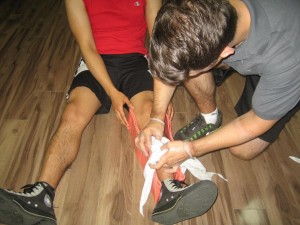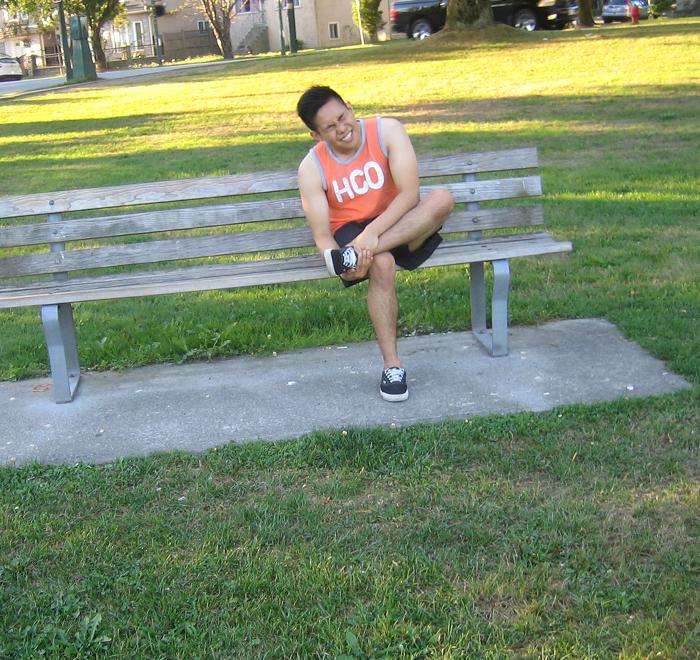Overview – What is a sprain?
- Sprain is the stretch or ripping of a ligament joining the bones.
- Takes place in both the upper and lower section of the body.
- Usually happens to the angle, wrist or knees.
Causes
- Pain or accidents.
- Lifting hefty items.
- Injuries sustained from sport.
Symptoms
- Discomfort
- Inflammation
- Lumps other than inflammation
- Bruising/tenderness at the region of the injury
- Lack of feeling in the area
- Unable to shift the joint.
Treatment
- Put on a cold compress to the injured region for about 20 minutes.
- This can be completed at least 5 times per day.
- Use a plastic bag with ice, enfolded in a towel.
- Use compression dressings to decrease the swelling.
- Keep the wounded leg elevated on a cushion.
- Take anti-inflammatory tablets if needed.
- Take rest for the suggested period.
- When pain/inflammation is reduced, do the suggested workouts.
Phone a doctor if the following occurs:
- Severe discomfort/lack of feeling.
- Unable to shift the joint.
- Inability to evaluate the brutality of the injury.
Steps to avoid
- Do not go back to your usual activities if you’re not fully cured.
- This could result in the problem turning chronic.
Prevention

- Avoid working out or doing sport when worn-out.
- Eat a well-proportioned meal for strong muscles
- Avoid unnatural weight gain.
- Workout every day particularly stretching aerobics.
- Do warm-up exercises before working out.
- Practice safety procedures, like having no clutter laying around your house.
- Run on a smooth surface.
- Do not wear shoes that don’t fit you properly.
Here’s How:
- Stay Safe. If you are not the casualty, practice general precautions and wear protective gear if you have any available.
- Do not phone the ambulance for a sprain. visit a doctor for a sprained joint if:
- The pain is severe.
- Casualty can’t put any force on it.
- It looks different than an undamaged joint.
- casualty can’t walk or move it.
- Casualty can’t walk more than four steps.
- There is a lack of feeling in the region of the sprain.
- Redness or red smudges spread out from the sprain.
- It has been sprained numerous times before.
- There is a sharp pain, inflammation, or redness over a bony part of your foot.
- Make use of the RICE procedure to treat the sprain.
- Relax the sprained joint by not putting force on it. Use a crutch on the undamaged side to tilt away from the injury.
- Ice the sprain by using an ice pack.
- Compress the sprain with a flexible dressing. Ask a health care practitioner to show you how to correctly apply an elastic dressing.
- Elevate the sprain above the level of the heart for the first 2 days.
Related video
FACT CHECK
https://en.wikipedia.org/wiki/Sprain
https://medlineplus.gov/sprainsandstrains.html
https://www.mayoclinic.org/diseases-conditions/sprains-and-strains/symptoms-causes/syc-20377938
